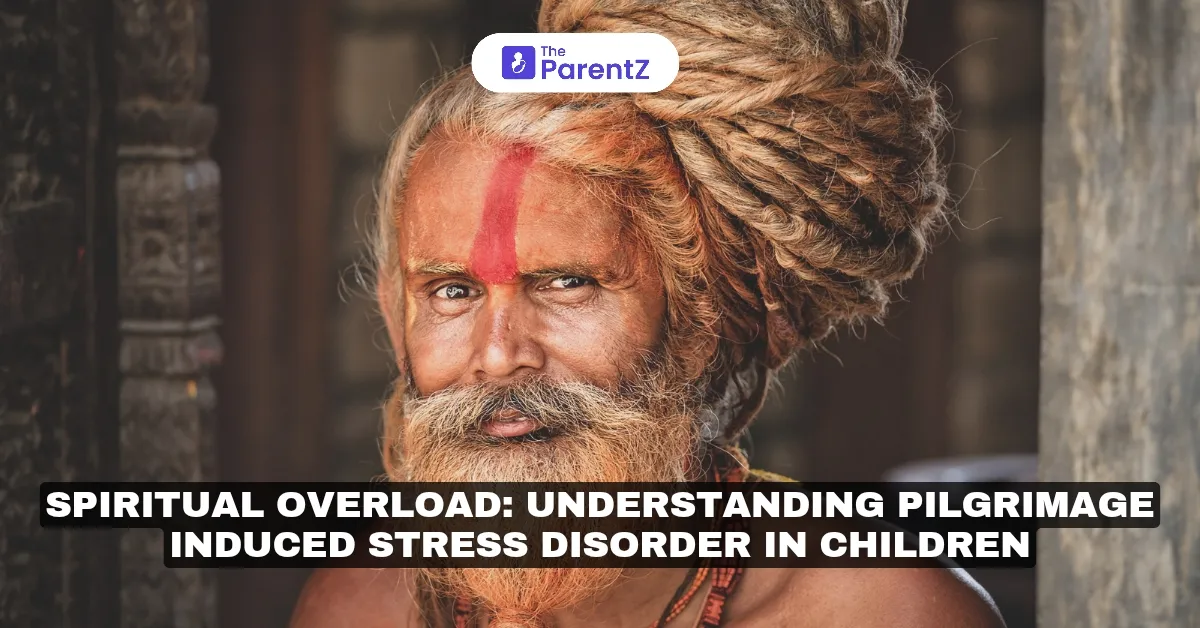Pilgrimages are often seen as deeply transformative, offering moments of spiritual awakening, reflection, and peace. For adults, these sacred journeys can be life-changing. But have you ever considered how these intense experiences might affect your child? While spirituality can nourish young minds, the emotional and physical demands of a pilgrimage can sometimes lead to a condition known as Pilgrimage-Induced Stress Disorder (PISD) in children.
This isn’t about dismissing the beauty of spiritual journeys, it’s about recognizing how different these experiences can feel for young hearts and minds. Let’s explore what PISD is, why it happens, and how parents can support their children in finding a healthy balance between faith and emotional well-being.
What Is Pilgrimage-Induced Stress Disorder (PISD)?
Pilgrimage-Induced Stress Disorder isn’t a formally recognized medical diagnosis, but it’s a growing concern in the realm of child psychology, particularly in cultures where religious journeys are common. It refers to psychological and emotional stress children experience during or after participating in intense spiritual journeys.
While adults often find purpose and peace in these rituals, children may feel overwhelmed due to:
• Long, physically exhausting travel
• Crowded, noisy environments
• Rigid schedules with little room for play or rest
• Exposure to emotionally intense religious rituals
• Separation anxiety or cultural dissonance if the environment feels unfamiliar
Children may not have the emotional maturity to process the depth of spirituality or the physical endurance to handle the rigors of such journeys.
Signs Your Child Might Be Experiencing Pilgrimage-Induced Stress
Children often can’t articulate stress the way adults do. Instead, it shows up in behavior and physical symptoms. Watch for:
• Increased irritability or tantrums
• Withdrawal from family or social activities
• Changes in sleep patterns (nightmares, insomnia)
• Physical complaints without medical cause (headaches, stomachaches)
• Heightened anxiety, clinginess, or fearfulness
• Loss of interest in activities they previously enjoyed
It’s not that they’re “misbehaving” or being “ungrateful”—they’re trying to cope with an overwhelming experience.
Why Does This Happen?
Children are naturally curious and resilient, but they thrive on routine, familiarity, and a sense of safety. Pilgrimages often disrupt all three:
• Sensory Overload: Loud chants, crowded spaces, unfamiliar sights, and sounds can overwhelm sensitive young minds.
• Emotional Mismatch: While adults seek spiritual meaning, children may struggle to understand complex rituals, leading to confusion or fear.
• Physical Exhaustion: Long hours of walking, fasting, or waiting can be taxing on a child’s body.
• Lack of Control: Children have little say in the schedule, leading to feelings of helplessness.
How Can Parents Help?
The goal isn’t to avoid spiritual journeys but to make them more child-friendly. Here’s how you can support your child:
1. Prepare Them Mentally and Emotionally
Before the journey, talk to your child about what to expect. Use simple language to explain the purpose of the pilgrimage. Show them photos or videos if possible. Let them ask questions, even if they seem trivial.
2. Prioritize Their Comfort
• Pack familiar items—a favorite toy, blanket, or book can provide emotional comfort.
• Ensure they get enough rest, snacks, and hydration.
• Dress them comfortably, considering the climate and travel conditions.
3. Create a Balance Between Ritual and Play
Spirituality doesn’t have to be solemn to be meaningful. Find moments for joy and play amidst the rituals. Let them run, laugh, and explore safely.
4. Acknowledge Their Feelings
If your child feels scared or upset, validate their emotions. Instead of saying, “Don’t be afraid,” try, “I understand this feels overwhelming. I’m here with you.”
5. Involve Them in Small Ways
Give your child simple responsibilities, like holding a prayer bead, lighting a candle, or carrying a small offering. This helps them feel included without overwhelming them.
6. After the Pilgrimage: Debrief and Reflect
When you return, talk about the journey. Ask what they enjoyed and what was hard. Draw pictures together, write about the experience, or create a small memory book. This helps them process their emotions.
When to Seek Professional Help
If your child’s stress symptoms persist for weeks after returning home—such as ongoing anxiety, nightmares, or behavior changes—consider speaking to a child psychologist. Early support can prevent long-term emotional difficulties.
The Heart of the Matter
Spiritual journeys can be beautiful and transformative, but children experience the world differently from adults. Recognizing and addressing pilgrimage-induced stress doesn’t diminish the sacredness of the journey, it enhances it. When we nurture our children’s emotional and spiritual well-being side by side, we teach them that faith isn’t just about rituals. It’s about compassion, understanding, and love—starting with the way we care for their tender hearts.








Be the first one to comment on this story.